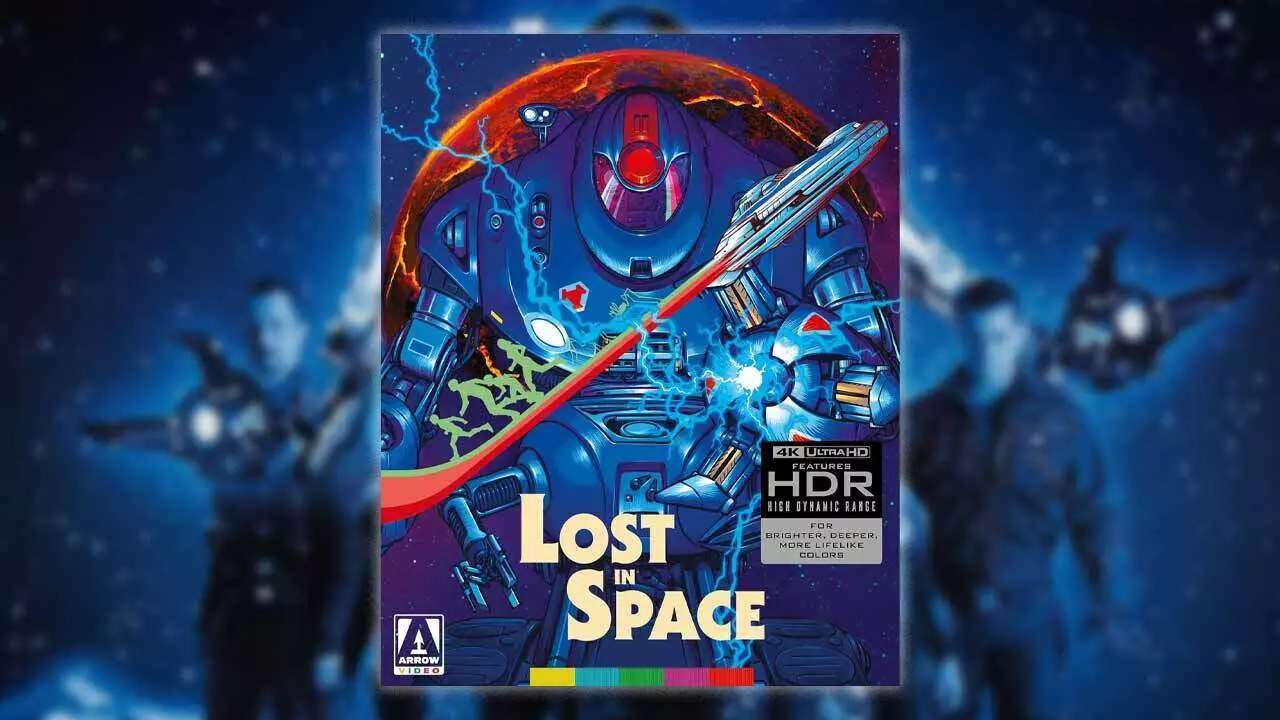The late 1990s was a transformative era for science fiction cinema, bridging visionary storytelling with groundbreaking visual effects, and *Lost in Space* (1998) stands out as a bold testament to that era’s creative ambition. While the film struggled commercially and critically upon release, its recent reissue in a Special Edition 4K Blu-ray format signifies a renaissance, breathing new life into a film that deserves reevaluation. This remastered release is not merely about restoring old footage; it’s a heartfelt effort to connect contemporary audiences with a piece of sci-fi history riddled with both nostalgic charm and inventive spectacle.
What elevates this reissue is the painstaking restoration from the original camera negatives, supervised by director Stephen Hopkins himself. This fidelity to the source material ensures that viewers can experience *Lost in Space* as nearly as possible same the way it was envisioned. This isn’t just about high-definition visuals; it’s about re-establishing the film’s unique aesthetic, honoring its pioneering effects, and reaffirming its importance amidst the crowded landscape of modern sci-fi offerings. The era-defining visual effects—once revolutionary—gain renewed clarity and detail, allowing today’s audiences to appreciate the craftsmanship that was ahead of its time.
The Power of Legacy and New Perspectives
This edition’s extensive bonus features transform the re-release from a simple remaster into a comprehensive pilgrimage for fans and newcomers alike. Interviews with key creatives—director Stephen Hopkins, screenwriter Akiva Goldsman, director of photography Peter Levy—provide fresh insights that contextualize the film’s ambitious vision. These newly filmed conversations reveal the passion and ingenuity behind the project, shedding light on the creative processes and challenges that shaped the final product.
In addition, archival commentary tracks and behind-the-scenes material retrace the innovations in visual effects and production craftsmanship. Such materials are invaluable because they highlight *Lost in Space*’s role as a technological pioneer, often overlooked in classic sci-fi canon. The inclusion of a video essay exploring the film’s portrayal of space travel demonstrates how the movie both reflects its time and anticipates future explorations in the genre. It’s a reminder that *Lost in Space* was striving not just to entertain but to push boundaries—an aspiration still relevant today.
From Cult Misstep to Cult Classic
The film’s initial reception was mixed, often criticized for its tonal inconsistencies and departures from its beloved TV roots. However, time has a way of softening critical edges, and *Lost in Space* now benefits from a re-evaluation rooted in nostalgia and recognition of its visual audacity. The recent resurgence exemplifies how films can evolve in cultural relevance, especially when fans and collectors invest in restoring and celebrating their history.
This reissue challenges the misconception that cinematic flaws diminish a film’s worth. Instead, it invites viewers to explore its inventive ideas, heartfelt character moments, and pioneering effects—elements that resonate on a deeper level when presented in stunning 4K. The bonus materials, including deleted scenes and featurettes, provide context and enrich understanding, transforming the viewing experience into an immersive journey. It’s a testament to the film’s enduring charm that critics and audiences now approach it with a more nuanced appreciation, aided by this meticulous restoration.
A Beloved Piece of Science Fiction Heritage
In a landscape saturated with CGI-heavy blockbusters, *Lost in Space* offers a reminder of the artistry that can be achieved with practical effects, innovative design, and storytelling ambition. This reissue not only restores the film’s aesthetic but also cements its place within the pantheon of cult sci-fi classics—worthy of admiration and study.
The renewed interest generated by Arrow Video’s Special Edition underscores the importance of preserving cinematic history. It isn’t just about upgrading visuals; it’s about honoring the creative risks taken by filmmakers, recognizing the film’s influence on future projects, and inspiring new generations of sci-fi filmmakers and fans alike. As the stars align for its digital renaissance, *Lost in Space* transforms from a misunderstood blockbuster into a beloved artifact—proof that even imperfect cinematic gems can find their rightful place in the hearts of dedicated viewers.

